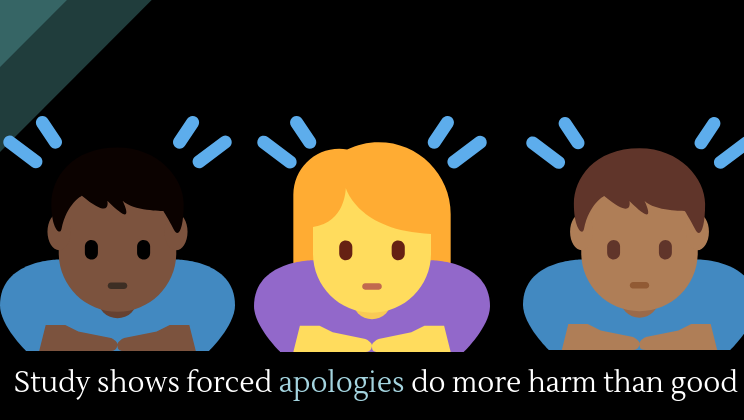Study shows forced apologies do more harm than good
Posted by Josh Taylor / December 2, 2018
A recent study has suggested that forcing a child to apologize before he or she knows why they’re apologizing might do more harm to the situation than good.
Imagine a scenario like this. Little Billy took little Sally’s toy during playtime. Mom or Dad makes Billy apologize, but they don’t explain why Billy has to apologize. So Billy says his sorry, but he doesn’t know why he has to––he just feels resentful that Sally tattled on him, or that Sally somehow caused him to be in trouble. From one of the researchers:
Make sure the child understands why the other person feels bad, and make sure the child is really ready to say ‘I’m sorry.’ Then have them apologize. Coercing your child to apologize is going to backfire. Other kids don’t view that apologizer as likable. The teachable element of having the child apologize has gone away and the goal of the apology prompt—to help your child express remorse, soothe someone else’s hurt feelings and make your child more likable—is lost.
The upshot is this: for kids (especially aged 7-9), use the apology opportunity to teach empathy for the wronged party. Explore with the child why the other party might feel bad.
But even adults have a hard time apologizing. If that’s you, try this method: listen to the complaint and restate it in good faith, explain your intent but don’t justify yourself or argue, suggest how you’re going to improve, and reinforce the relationship.
More lifehacks.
Never follow any instruction, ever. Forget about this one.